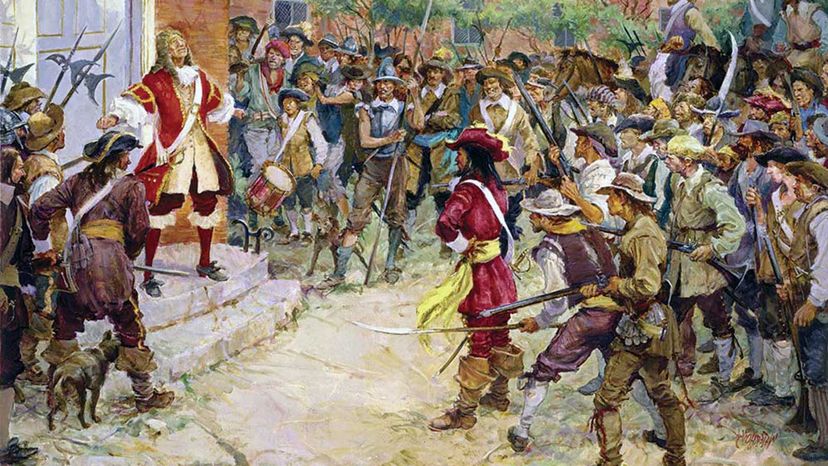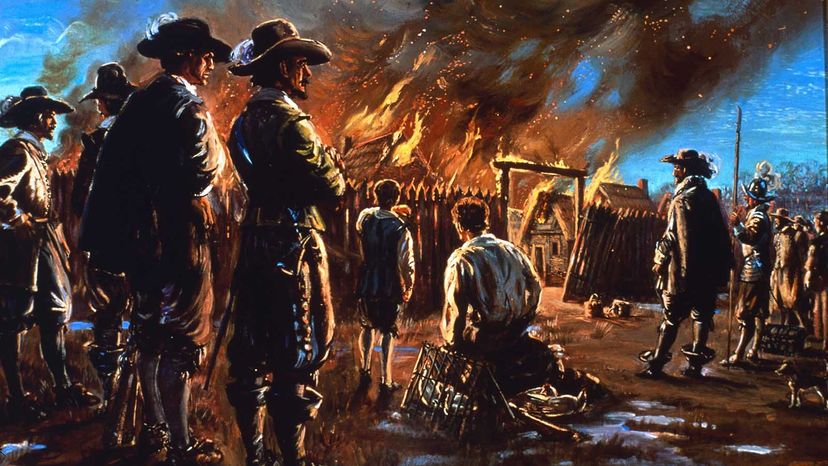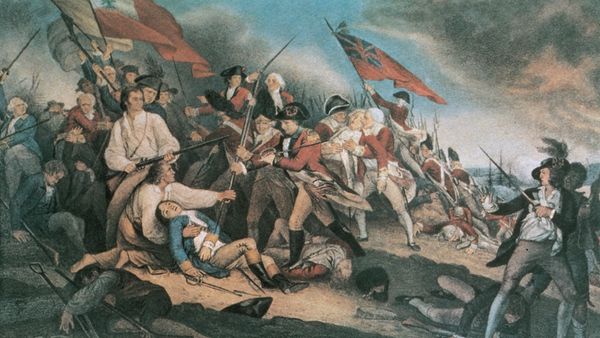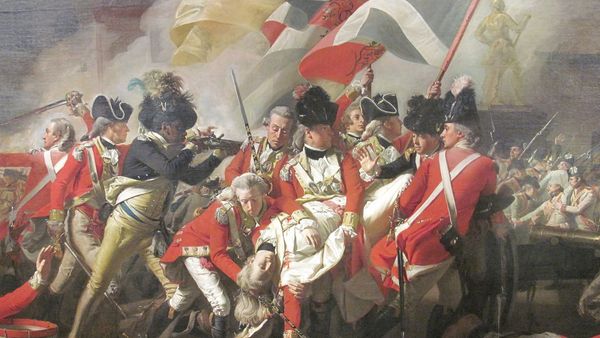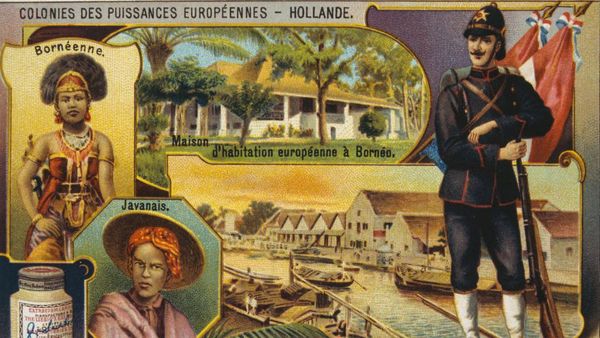What is known for sure is that in August 1676, Bacon issued a "Declaration of Grievances." In it, he took opposition to Berkeley's imposition of unjust taxes, favoritism and failure to properly promote trade. The grievances also noted the governor's inability to protect colonists from attacks by Indians, specifically:
For having, when the army of English was just upon the track of those Indians, who now in all places burn, spoil, murder and when we might with ease have destroyed them who then were in open hostility, for then having expressly countermanded and sent back our army by passing his word for the peaceable demeanor of the said Indians, who immediately prosecuted their evil intentions, committing horrid murders and robberies in all places, being protected by the said engagement and word past of him the said Sir William Berkeley, having ruined and laid desolate a great part of His Majesty's country, and have now drawn themselves into such obscure and remote places and are by their success so emboldened and confirmed by their confederacy so strengthened that the cries of blood are in all places, and the terror and consternation of the people so great, are now become not only difficult but a very formidable enemy who might at first with ease have been destroyed.
Bacon and his militia began to raid, loot and kill, despite Berkeley's refusal to recognize his vigilante group. Once the rebellion got going, it settled into a sort of rhythm, according to Rice. Bacon led his militia against both the Pamunkey and Occaneecheee Indians. When threatened by the governor, he turned back and trained his guns on the governor. This happened several times.
"There was a lot of back and forth," says Rice. "It went on like that for months." In September, the militia captured Jamestown and burned much of it to the ground.
But then suddenly, Bacon died — not in battle, but of sickness — possibly typhus, on Oct. 26, 1676. His body was buried in a secret location to keep the governor from putting it on display, according to Rice.
But Bacon's Rebellion didn't die with him.
"The underlying reasons for the rebellion didn't just disappear because he did," says Rice. However, at that point, the militia, for the most part, stopped fighting the Indians and the conflict became more of a civil war. The Berkeley loyalists were able to achieve final victory by controlling the waterways just a few days before a thousand Redcoats arrived by ship.
It's in these later stages that the majority of the rebel militia was made up of poor planters and enslaved Africans, explains Rice. They had the most to lose if captured and the most to gain if they won.
